The outbreak of COVID-19 requires a strong community response that begins at the grassroots level. Those on the front line play an especially crucial role in the process, from testing every blood sample to checking everyone who passes through the entry and exit points. The following five short stories illustrate how, on a micro-level, the Pao School community is redoubling its efforts in supporting the nation's battle against COVID-19 on the journey to return to normality.
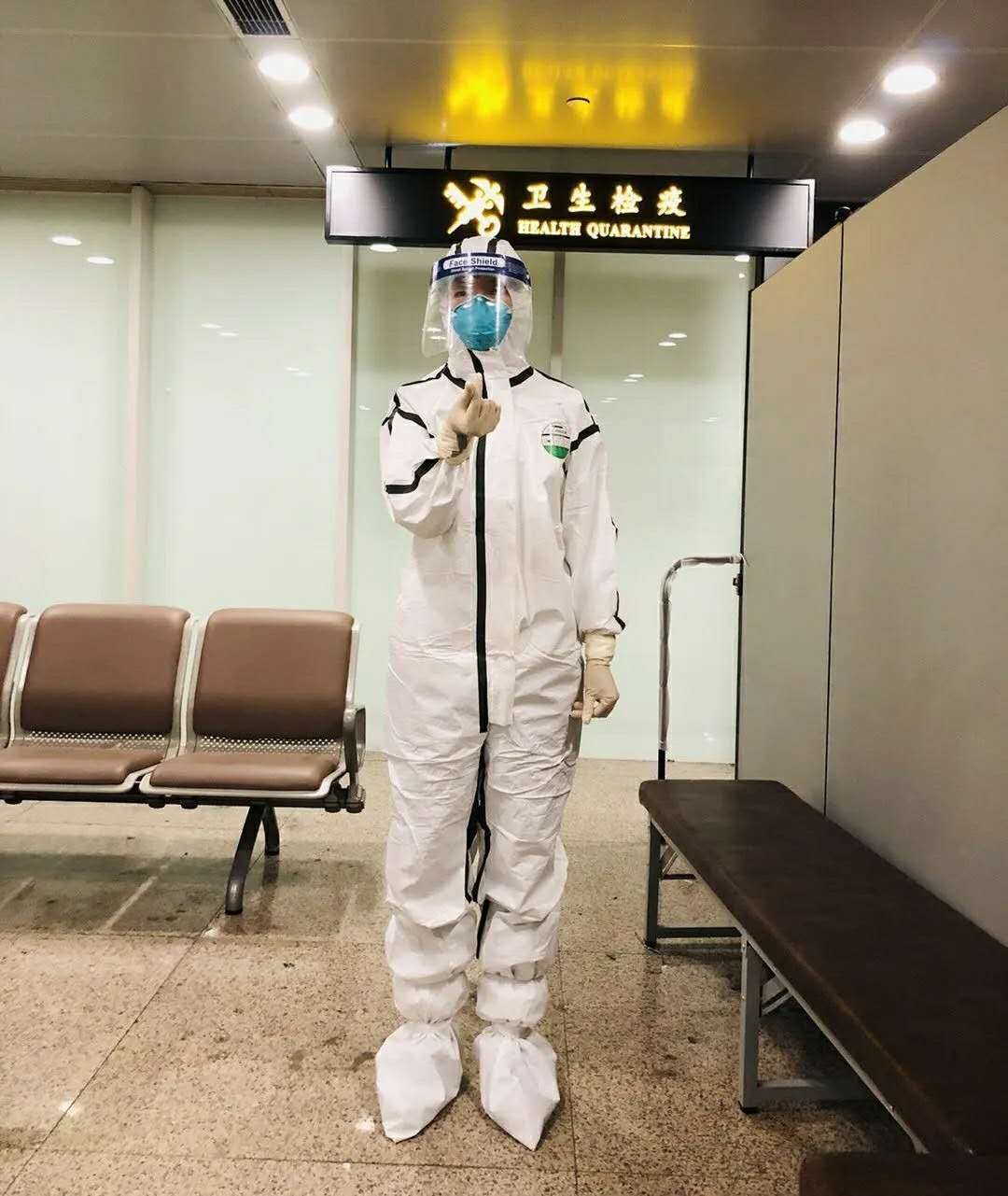
Jasmine's mother
We must ensure passengers' safety and make every effort to prevent and control the spread of this epidemic in China and overseas. ——Jasmine' mother
This assignment was challenging in many respects. First of all, every day quarantine officers have regular contact with large volumes of airline passengers. This in itself presents a risk to their personal health, but they also need to consider the risk an outbreak in the airport would present to the broader public.
With that in mind, it is imperative to minimize health risks to people in the airport. Quarantine officers are on the frontlines, 24 hours a day, at every entry and exit point. They are responsible for checking travellers’ health declaration card, temperature measurement, and related medical inspection work. The quarantine officers also need to board and inspect every aircraft that arrives in Shanghai. If there is a suspected infection, the person must be sent directly to the hospital. In addition, the passengers in the closest three rows to the passenger with suspected COVID-19 must be medically isolated for observation after entering the country. For other key passengers on the plane, detailed entry flow is also recorded. This includes tracking the passengers' movement, collecting throat swabs for COVID-19 nucleic acid testing, and reporting all conditions in a timely manner.
Due to the high volume of people passing through Pudong Airport, quarantine officers have tremendous workloads. A single officer must inspect passengers on dozens of planes a day and some workers even to do 24-hour shifts. At the same time, for those who are flying out of China, quarantine officers must carry out various inspections to prevent all those who have not met quarantine requirements or have shown symptoms from taking off.
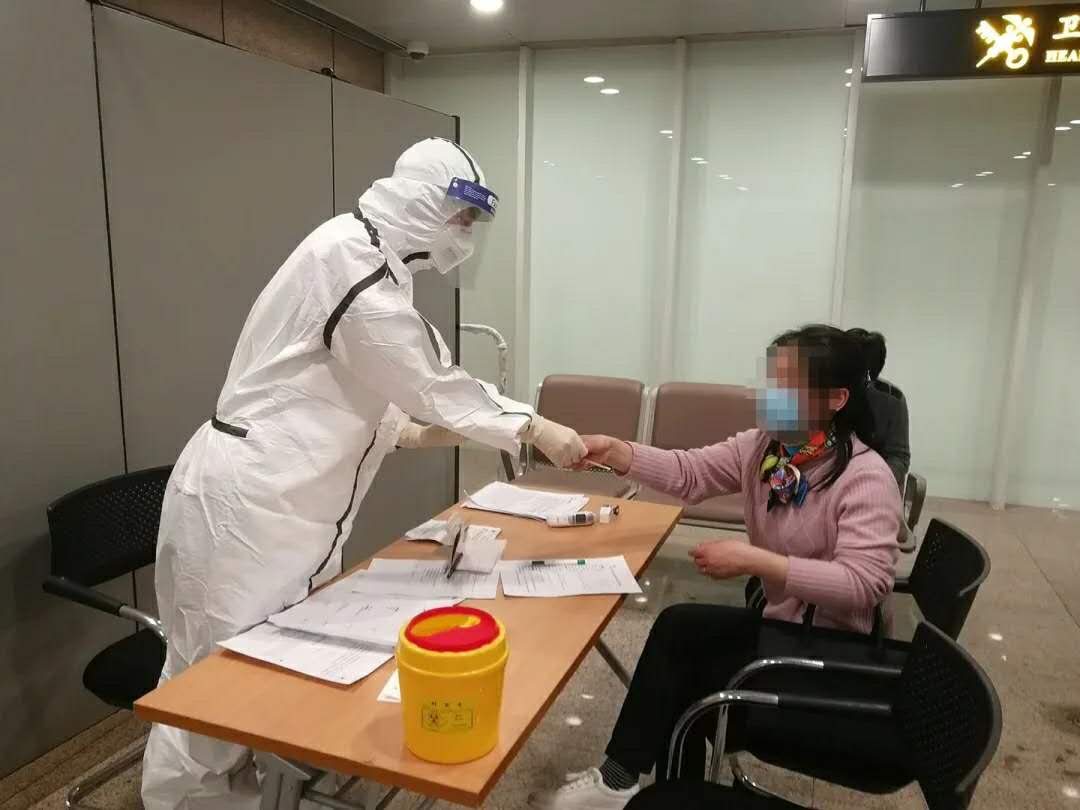
At present, given the serious epidemic situation overseas, more than 50 of our colleagues have heightened screening procedures of tourists from key affected areas to Shanghai. At China's airports and seaports, we are on the front line working to control and prevent spread of this virus. ——Jasmine's mother

Dr. Gu, Sabrina's husband
As new parents, Sabrina and her husband decided after learning about the COVID-19 outbreak to entrust the care of their young daughter to her grandparents. This arrangement provides them with some peace of mind and reduces the health risks to the child.
According to Dr. Gu, all personnel are required to wear airtight protective clothing when on duty, often for 12-hour stretches. Since the protective clothing is single-use only, staff members in the laboratory often wait until 10 pm to eat dinner - once they are off duty - to conserve resources and reduce the risks of infection.
When the hospital convened to assemble a team to go to Wuhan, Dr. Gu said that he volunteered immediately. Although he ultimately did not go to Wuhan, he is playing an important role in safeguarding public health and displays both dedication and professionalism.
Though Sabrina was worried about her husband's safety, she still gave her full support to his work. Every day, she drives him to and from work and does all the housework – making sure he rests well before his next shift.
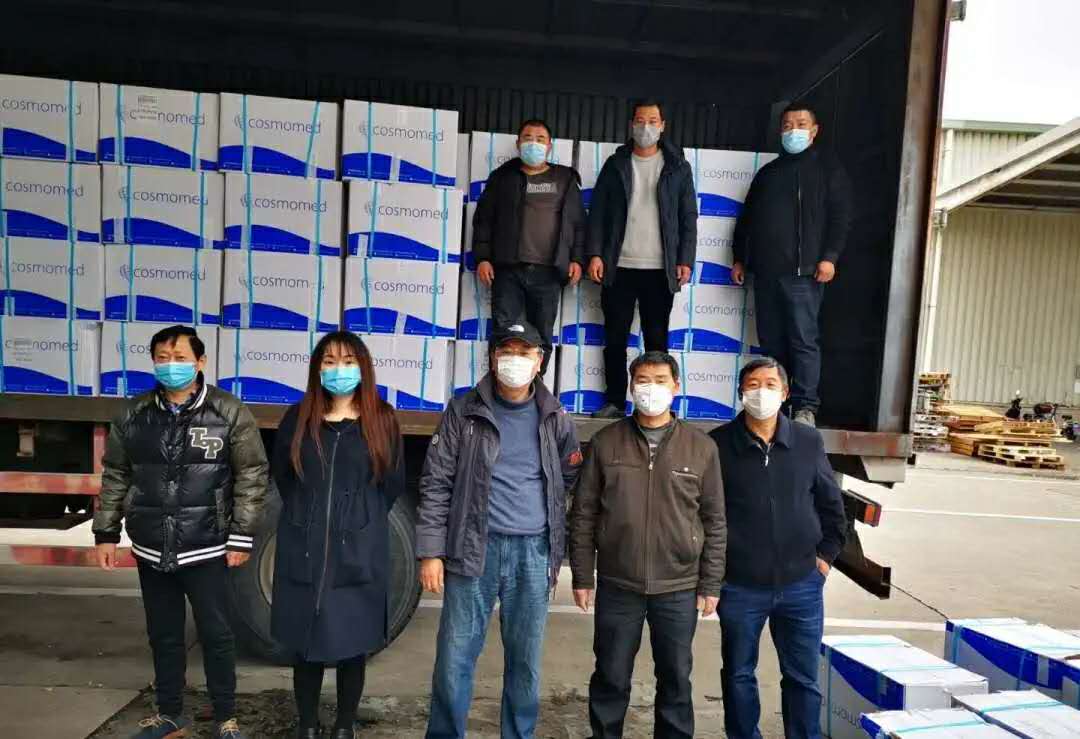
Mr. Chen with his team
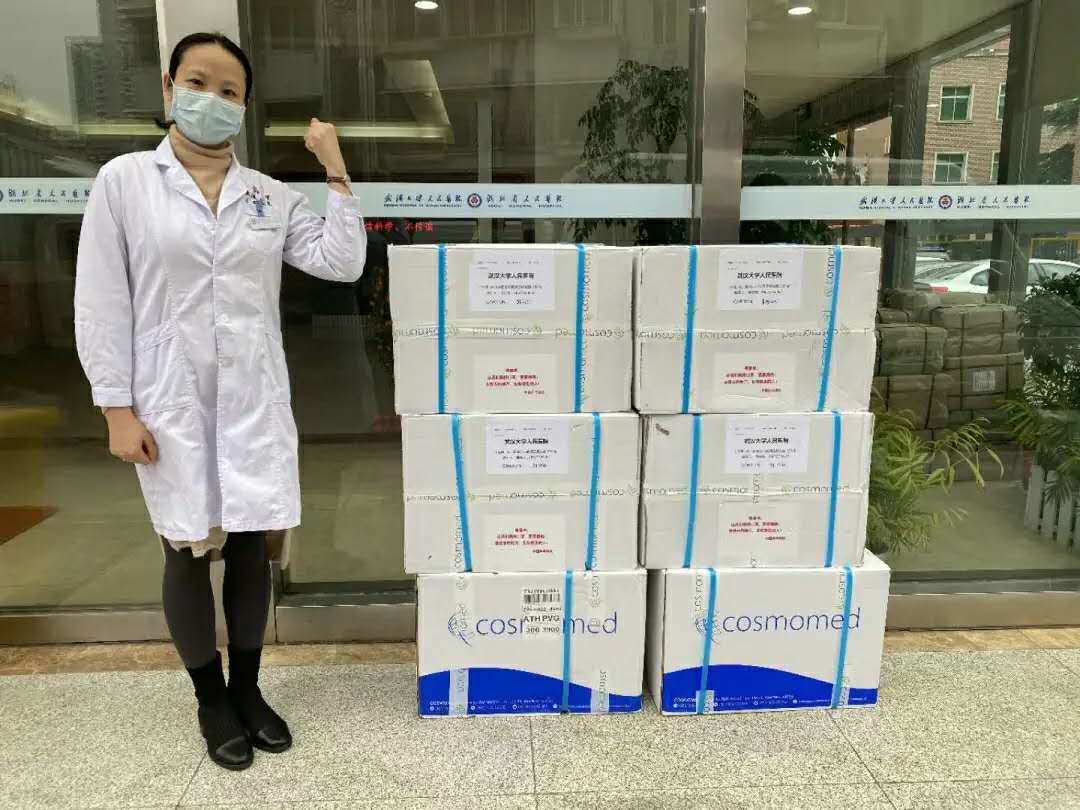
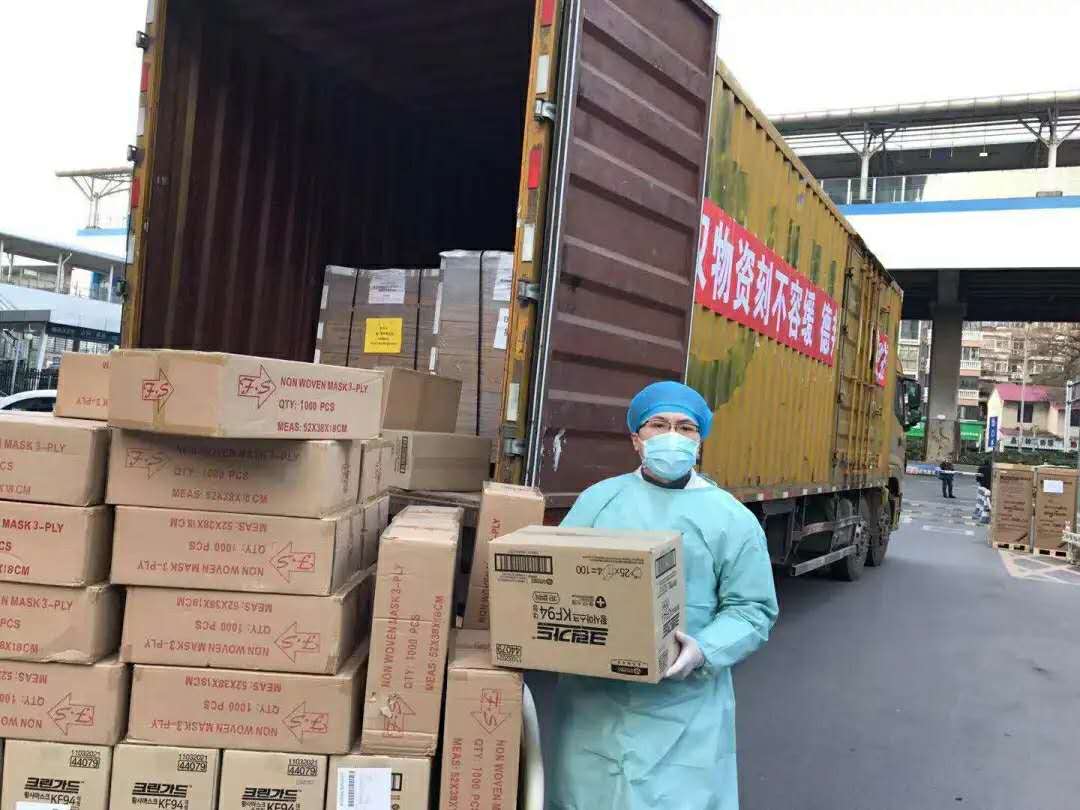
On New Year's Eve, Mr. Chen received a call from a friend in the United States. Mr. Chen's friend hoped to send a batch of donated supplies to Wuhan, but because Wuhan was closed down at the time, all flights were cancelled. Fortunately, Mr. Chen was able to help out and took on the tough job of transporting supplies donated from outside of China. He has become the only logistics supplier authorized by the Hubei Charity Federation to accept overseas donated supplies at Shanghai Port. These services include inspection, customs clearance, pickup, trucking, and so on.
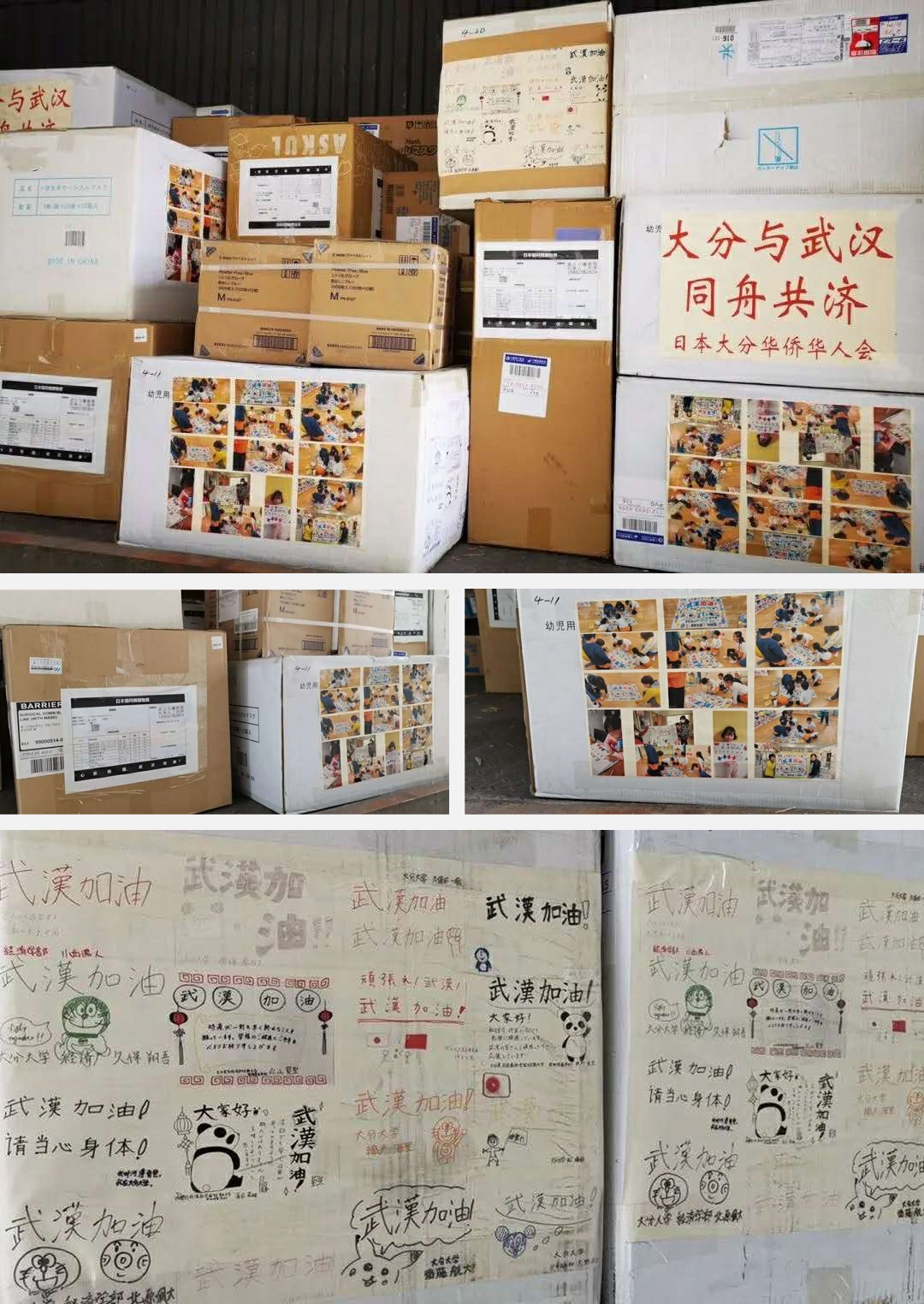
Some donated supplies from Japanese children
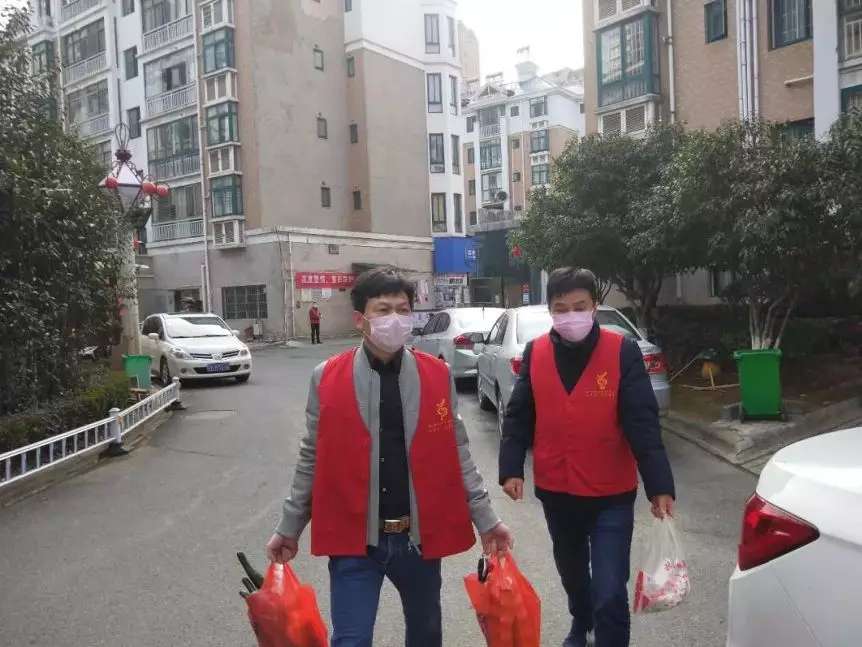
Y10 Zhuofu's father
As the party committee, secretary and chairman of the Shuibei Chamber of Commerce in Xinyu City, Zhuofu's father took the initiative to respond to the government's call and set up a volunteer service team. With his many professional resources, he was able to set up tents and other facilities for grassroots work in different communities. After a busy day's work, he still returns to his own community, where he works a night shift to support local epidemic prevention and control work.
During this period, Zhuofu's father learned that some residents will be quarantined at home after coming into contact with diagnosed patients and would require volunteers to provide assistance for their everyday needs. He immediately got in touch with the two resident families to help them in every way possible, as they faced many inconveniences given the restrictions on their movements.
In addition to the stories shared above, there are many other families who are helping out on the frontline in their own way, such as the group of parents noted below.
Y9 Michael’s mother bought a batch of safety goggles and N95 masks overseas at her own expense. After returning home, she donated them to her schoolmates working in the isolation ward of a hospital in Changsha. Additionally, a group of alumni from Central South University's Medical School's class of 1995 donated a total of RMB 150,000. This money was used to purchase protective clothing and N95 masks for the quarantine zone and to support the Hunan medical team working in Huanggang City, Hubei Province.
Y9 Lily's mother is engaged in online medical education-related work and has created five video lectures together with friends working overseas. The lectures provided suggestions to frontline doctors for the treatment of severe pneumonia. These video lectures have been widely disseminated and viewed by frontline medical workers. Thus far, there have been 2,000 views of the first series of video lectures.
Y9 Claire's mother is a medical worker at Shanghai's Ruijin Hospital. When vital medical supplies were pouring toward Wuhan and Hubei, the supplies in Shanghai became in short supply. Despite limited purchase channels and delivery channels, she and her team did their best to provide some masks, gloves, and goggles to colleagues who most needed them. Leveraging her work in the hospital, Claire's mother actively assisted the Field Study club to reach out to hospitals that were in need of supply donations.
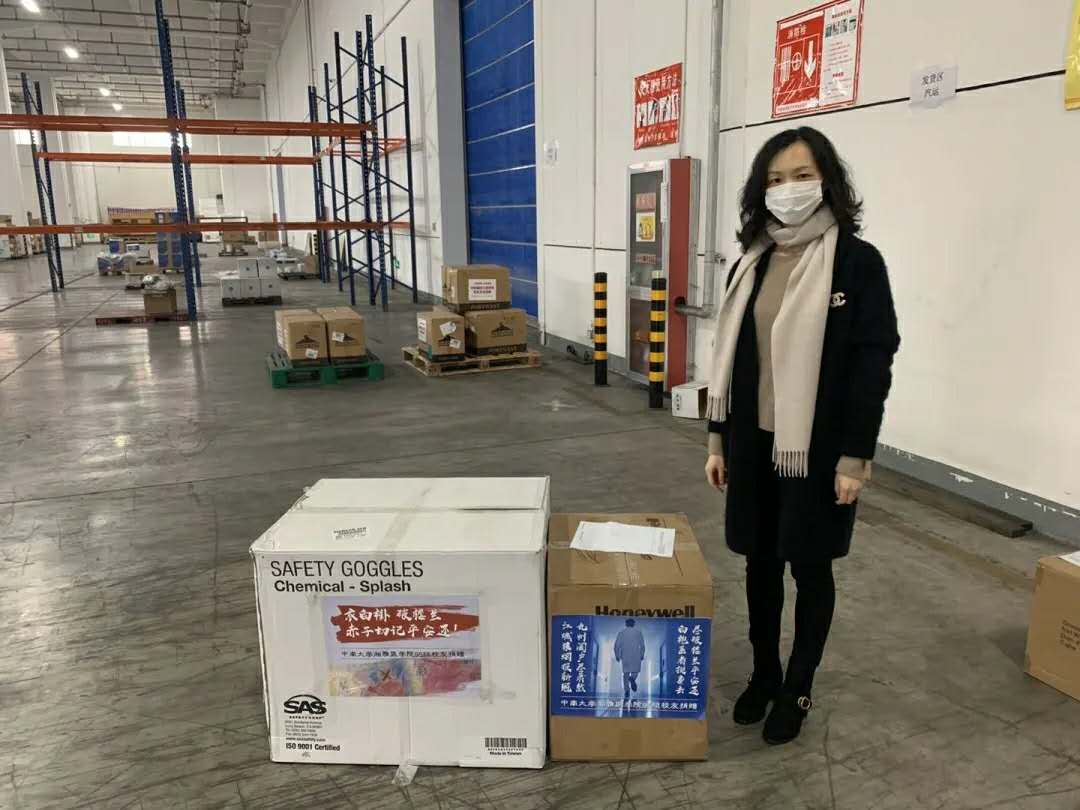
Y9 Michael's mother
In addition, many parents have made their own contributions during this epidemic. Y9 Tony's father, Y11 Tom's father, and Y9 Eric's parents all donated a large number of epidemic prevention supplies. Further, Tony donated the money he received as a Chinese New Year gift to efforts against COVID-19.
We wanted to show our children through our own actions that it is important to take the initiative to help the nation in its hour of need. This is an example of social responsibility. Reducing the chances of the virus spreading by staying indoors and not meeting with others are also examples of social responsibility - this is how the children can make their own contributions. ——Y9 Eric's parents
Thanks to Pao School's Family Committee
for their strong support
We know that besides the stories we have collected, there are still a lot of other
inspirational stories in the Pao community waiting to be told. We hope to hear from you
- please contact us by email: Paolife@ykpaoschool.cn.